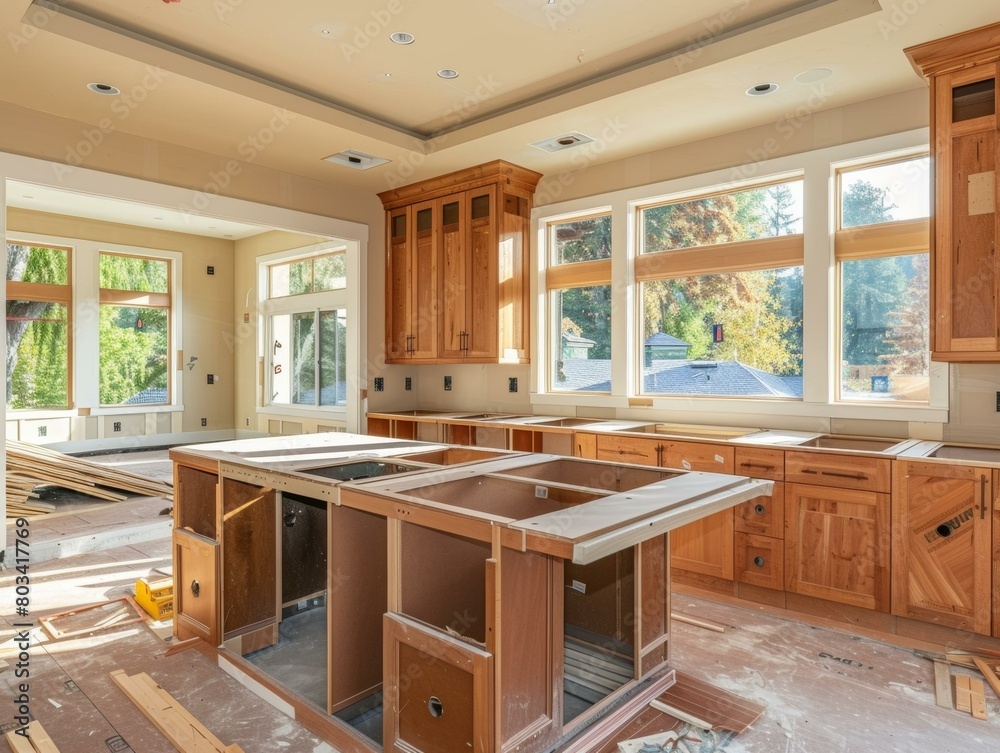1. Personal Savings
Advantages- No Interest: Using personal savings means you avoid interest payments and additional fees.
- Immediate Access: Funds are readily available, allowing you to start your project without delay.
- Depleting Savings: Using savings can deplete your emergency fund, leaving you vulnerable to unexpected expenses.
- Limited Budget: Your project budget is limited to the amount you have saved.
2. Home Equity Loans
Advantages- Fixed Interest Rates: Home equity loans typically have fixed interest rates, making your monthly payments predictable.
- Tax Deductible: Interest on home equity loans may be tax-deductible if the funds are used for home improvements.
- Risk of Foreclosure: Your home serves as collateral, so failing to make payments could result in foreclosure.
- Closing Costs: There may be closing costs and fees associated with obtaining a home equity loan.
3. Home Equity Lines of Credit (HELOCs)
Advantages- Flexibility: HELOCs provide a revolving line of credit, allowing you to borrow as needed and only pay interest on the amount used.
- Lower Initial Rates: HELOCs often have lower initial interest rates compared to other loans.
- Variable Rates: HELOCs usually have variable interest rates, which can increase over time.
- Risk of Foreclosure: As with home equity loans, your home is collateral, posing a foreclosure risk if you default on payments.
Join HICP Homeowner’s Alliance
Connect with experts, get special discounts and enjoy member benefits
4. Personal Loans
Advantages- Unsecured: Personal loans are typically unsecured, meaning you don’t have to use your home as collateral.
- Fixed Rates: Many personal loans offer fixed interest rates, making budgeting easier.
- Higher Interest Rates: Interest rates on personal loans are generally higher than those on home equity loans or HELOCs.
- Shorter Repayment Terms: Personal loans often have shorter repayment terms, leading to higher monthly payments.
5. Credit Cards
Advantages- Convenience: Credit cards offer quick access to funds and are easy to use for smaller projects.
- Introductory Offers: Some credit cards offer introductory 0% APR periods, allowing you to finance your project interest-free for a limited time.
- High Interest Rates: After the introductory period, credit cards typically have high interest rates, increasing the cost of borrowing.
- Risk of Debt: Relying on credit cards can lead to high debt levels and financial strain if not managed carefully.
6. FHA 203(k) Loans
Advantages- Government-Backed: FHA 203(k) loans are backed by the Federal Housing Administration, offering lower down payments and more flexible credit requirements.
- Combines Purchase and Renovation: These loans allow you to combine the cost of purchasing a home with the cost of renovations into a single mortgage.
- Strict Requirements: FHA 203(k) loans have strict eligibility and property requirements.
- Lengthy Approval Process: The approval process can be longer compared to other financing options due to the additional paperwork and inspections required.
7. Cash-Out Refinancing
Advantages- Lower Interest Rates: Cash-out refinancing allows you to replace your existing mortgage with a new one at a lower interest rate, while taking out additional cash for home improvements.
- Tax Deductible: Interest on the refinanced mortgage may be tax-deductible if used for home improvements.
- Closing Costs: There are closing costs and fees associated with refinancing your mortgage.
- Extended Loan Term: Refinancing can extend the term of your mortgage, increasing the total interest paid over the life of the loan.
8. Government Grants and Loans
Advantages- No Repayment Required: Government grants do not require repayment, making them a cost-effective way to finance home improvements.
- Low-Interest Loans: Government-backed loans often have lower interest rates and more favorable terms.
- Eligibility Requirements: Government grants and loans have strict eligibility criteria, limiting availability to certain homeowners or projects.
- Limited Funding: Grants may not cover the entire cost of your project, requiring additional financing sources.
9. Contractor Financing
Advantages- Convenient: Contractor financing can be arranged directly through the company performing the work, simplifying the process.
- Promotional Rates: Contractors often offer promotional financing with low or no interest rates for a specified period.
- Higher Costs: After the promotional period, interest rates may be higher than other financing options.
- Limited Choices: You may have limited financing options and less control over the terms.
10. Savings and Investment Accounts
Advantages- No Interest or Fees: Using funds from savings or investment accounts eliminates interest payments and additional fees.
- Control Over Funds: You have complete control over how much to use and when to use it.
- Potential Penalties: Withdrawing from certain investment accounts, like retirement accounts, can incur penalties and tax liabilities.
- Impact on Savings: Using these funds can reduce your savings for other financial goals or emergencies.
Conclusion
Choosing the right financing option for your home improvement project depends on your financial situation, the scope of your project, and your long-term goals. By understanding the advantages and disadvantages of each option, you can make an informed decision that best suits your needs. Whether you opt for personal savings, home equity loans, personal loans, credit cards, FHA 203(k) loans, cash-out refinancing, government grants, contractor financing, or savings and investment accounts, careful planning and consideration will help ensure the success of your home improvement project. Always consult with financial advisors or mortgage professionals to explore the best financing options available to you.




















